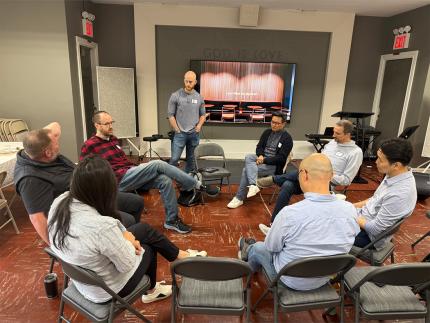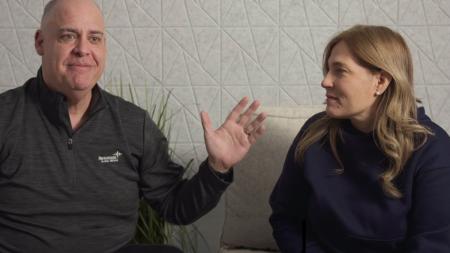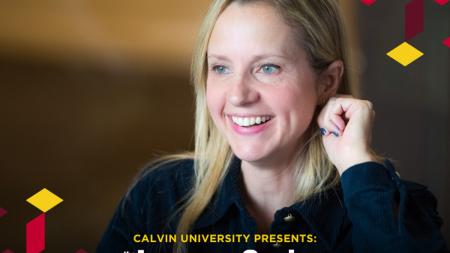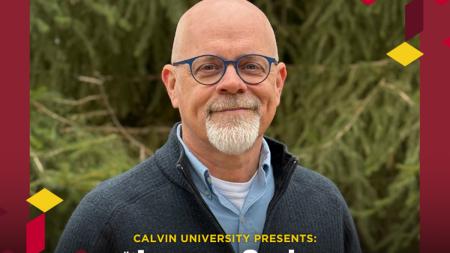A Bilingual, Bicultural Identity

On the morning of May 15, 2025, following opening worship led by Reverends Tim McHugh and Insoo Oh, Rev. KwangBae Lee called the 429th meeting of Classis Hudson to order. As one of the oldest classes in the Christian Reformed Church in North America, Hudson currently consists of 26 affiliated ministries: 15 organized churches, 10 emerging churches, and one campus ministry. Among these ministries, 12 use Korean as their primary language.
Lee, who chaired the meeting, joined the CRCNA in 2021 and partnered with Resonate Global Mission to plant The Story Church in Flushing, N.Y.
Rev. Jeremy Mulder, who served as stated clerk of Classis Hudson for the past six years, has supported and walked alongside the classis in its journey to become bilingual. “I grew up in a Dutch immigrant church,” he said. “My grandparents and parents spoke Dutch, and I believe that background helped me—and many others in our classis —to empathize with the needs of immigrant communities.”
Despite the diversity of metropolitan New York City, he said, many members of Classis Hudson are used to being in a predominantly anglo-majority culture and are sometimes uncomfortable in Korean-speaking settings. However, he added, church leaders have grown to see this not as a barrier but as an opportunity to foster greater understanding and hospitality.
“One reason our classis has functioned so well,” said Mulder, “is that Korean-speaking members have been fully recognized and respected as part of the body.”
The opening worship at the May meeting concluded with a bilingual, Korean and English, reading of the Nicene Creed to mark its 1,700th anniversary. As the meeting proceeded, agenda items were presented and discussed in English. Members actively engaged in their roles regardless of their English fluency. It was clear that language ability was not seen as a limitation.
One particularly striking example of this occurred when two Korean-speaking pastors reported on their time serving as classical counselors for two English-speaking congregations. Rev. Kwon Do Lee and Rev. Insoo Oh reported on City Grace Church and Good News Church, respectively.
City Grace Church, with which Rev. Kwon Do Lee has worked for the past year and a half, was actually one of the first churches to minister to him when he began his pastoral journey, he said. “They prayed for me and my church. At the time, Pastor Benjamin Spalink, who led the church, offered invaluable advice about the unique challenges of ministry in Manhattan,” said Lee. After Spalink’s resignation, the church requested a pastor familiar with the Manhattan context, and, though concerned about the language barrier, Lee accepted the role, saying, “I wanted to return the grace I had received.”
The path to unity within Classis Hudson—sharing leadership with Korean-speaking members and transcending language and culture barriers—required significant effort and patience, noted Mulder. Reflecting on the past decade, he shared, “Ten years ago, the language barrier was our biggest challenge. We considered translation devices and even splitting into separate Korean and English sessions with joint portions in between. We asked: How can we truly become united across language divides?”
The turning point came with the emergence of bilingual pastors. “Pastors such as James Lee began to serve as a bridge for us by translating and interpreting for the classis, which changed everything,” said Mulder. “Colloquium doctums were conducted in the person’s native language over Zoom with captions and/or subtitles. Sermon videos could also be prepared in someone’s native tongue with captions and/or subtitles. Classis began incorporating Korean-language prayers and songs during our worship and made sure to pause during proceedings in our business meetings so that our bilingual ministers could serve as a bridge and help ensure full participation from Korean-speaking ministers.”
Rev. Kwon Do Lee, despite not being comfortable with English at first, said he grew more accustomed to serving in the classis over a period of three years. “It was awkward at first,” he said, “but I’m deeply thankful for how sincerely the classis members listened to and supported me.”
After the classis meeting, members met in diverse small groups to share about their ministries and lives. These groups are part of an initiative introduced by Rev. James Lee, who has served as chair of the Classis Hudson interim committee for the past three years, to deepen relationships beyond surface-level greetings.
One of the small groups – made up of a Filipino-American minister, two Korean-speaking ministers, and lay leaders from predominantly white-anglo congregations – spent a long times together in fellowship, and elder Hank Schuurman of Cedar Hill CRC, Wyckoff, N.J., closed their time in prayer with these words: “Lord, thank you for the time we just shared, reflecting on both the challenges and blessings we face. Sometimes we feel alone in our struggles, but being here reminds us that others share similar experiences, and that gives us encouragement. . . . It’s a beautiful reminder that you are one God over all the earth, and that regardless of our language or background, we can grow together and stand in awe of your greatness.”
Within Classis Hudson, both English-speaking and Korean-speaking pastors gather regularly for prayer and mutual encouragement. Leaders such as Rev. Jason Chung have played a vital role over the past several years in helping Korean-speaking ministers find their place in classis, sharing wisdom for their immigrant ministries and providing professional development opportunities for growth in leadership.
Today’s Classis Hudson is a result of sustained commitment, humility, and collaborative problem-solving.
“When members of a classis speak multiple languages, the language barrier presents a significant challenge,” Mulder said. “And with each additional language, the complexity increases. But what’s important is not to ignore the challenge. We didn’t always know the best solutions, but instead of saying, ‘They’ll just have to adapt,’ we made it our goal never to turn a blind eye. We wanted to ensure real participation and a true sense of belonging. And over time, we believe, God honored that effort—not by our strategies but by sending the right people who could help make this kind of integration possible.”
Recognizing their expanded identity as a bilingual and bicultural classis, Classis Hudson aims to model unity within the increasingly diverse CRCNA denomination, embracing differences while growing together as one body.


